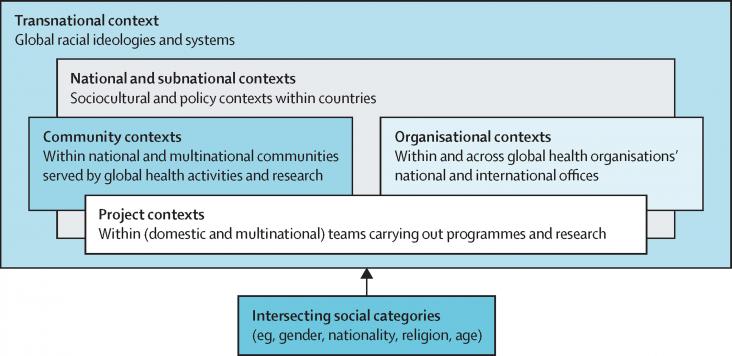Background: Female genital mutilation (FGM) can leave a lasting mark on the lives and minds of those affected.
Background: The number of individuals with vision impairment worldwide is increasing because of an ageing population.
Little is known about the immediate psychological impacts of the national lockdown implemented during the COVID-19 pandemic on the general population in Arab countries like Jordan.

This Comment supports SDGs 3 and 10 by highlighting the need to centre race in the work of the global health community. The authors call on colleagues to meaningully engage with critical race theory, a transdisciplinary intellectual movement to understand and disrupt systemic racism.
If we can’t see race and ethnicity in research, how will we see racial inequality?
The COVID-19 pandemic has uncovered and intensified existing societal inequalities.
This Research paper supports SDGs 3 and 10 by assessing ethnic differences in SARS-CoV-2 seropositivity among hospital workers. The findings showed that Black people had more than double the likelihood of SARS-CoV-2 seropositivity compared with White people, independent of age, sex, socioeconomic factors, and hospital role.
This Comment supports SDGs 3 and 10 by highlighting inequities in palliative care between racial groups, including differences in the use of palliative care services, symptom control, and the documentation and implementation of people's end of life wishes.
"
This Comment article supports SDG 3 and 10 by proposing that future studies exploring the link between racism and health inequalities are designed with more theoretically informed research questions, whose findings can more readily help tackle existing problems. Suggested areas for further research include the impact of neighourhood desegregation, increased racial diversity in labour markets, and reduced mass incarceration in diminishing racial health inequalities.
This Article supprts SDGs 3 and 10 by assessing the performance of four severity scoring systems used for case-mix determination and benchmarking in intensive care units to identify possible ethnicity-based bias. The study found systemic differences in calibration across ethnicities.
